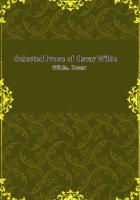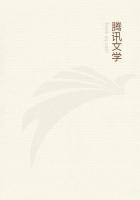LACHES:Certainly.
SOCRATES:I would not have us begin,my friend,with enquiring about the whole of virtue;for that may be more than we can accomplish;let us first consider whether we have a sufficient knowledge of a part;the enquiry will thus probably be made easier to us.
LACHES:Let us do as you say,Socrates.
SOCRATES:Then which of the parts of virtue shall we select?Must we not select that to which the art of fighting in armour is supposed to conduce?
And is not that generally thought to be courage?
LACHES:Yes,certainly.
SOCRATES:Then,Laches,suppose that we first set about determining the nature of courage,and in the second place proceed to enquire how the young men may attain this quality by the help of studies and pursuits.Tell me,if you can,what is courage.
LACHES:Indeed,Socrates,I see no difficulty in answering;he is a man of courage who does not run away,but remains at his post and fights against the enemy;there can be no mistake about that.
SOCRATES:Very good,Laches;and yet I fear that I did not express myself clearly;and therefore you have answered not the question which I intended to ask,but another.
LACHES:What do you mean,Socrates?
SOCRATES:I will endeavour to explain;you would call a man courageous who remains at his post,and fights with the enemy?
LACHES:Certainly I should.
SOCRATES:And so should I;but what would you say of another man,who fights flying,instead of remaining?
LACHES:How flying?
SOCRATES:Why,as the Scythians are said to fight,flying as well as pursuing;and as Homer says in praise of the horses of Aeneas,that they knew 'how to pursue,and fly quickly hither and thither';and he passes an encomium on Aeneas himself,as having a knowledge of fear or flight,and calls him 'an author of fear or flight.'
LACHES:Yes,Socrates,and there Homer is right:for he was speaking of chariots,as you were speaking of the Scythian cavalry,who have that way of fighting;but the heavy-armed Greek fights,as I say,remaining in his rank.
SOCRATES:And yet,Laches,you must except the Lacedaemonians at Plataea,who,when they came upon the light shields of the Persians,are said not to have been willing to stand and fight,and to have fled;but when the ranks of the Persians were broken,they turned upon them like cavalry,and won the battle of Plataea.
LACHES:That is true.
SOCRATES:That was my meaning when I said that I was to blame in having put my question badly,and that this was the reason of your answering badly.For I meant to ask you not only about the courage of heavy-armed soldiers,but about the courage of cavalry and every other style of soldier;and not only who are courageous in war,but who are courageous in perils by sea,and who in disease,or in poverty,or again in politics,are courageous;and not only who are courageous against pain or fear,but mighty to contend against desires and pleasures,either fixed in their rank or turning upon their enemy.There is this sort of courage--is there not,Laches?
LACHES:Certainly,Socrates.
SOCRATES:And all these are courageous,but some have courage in pleasures,and some in pains:some in desires,and some in fears,and some are cowards under the same conditions,as I should imagine.
LACHES:Very true.
SOCRATES:Now I was asking about courage and cowardice in general.And Iwill begin with courage,and once more ask,What is that common quality,which is the same in all these cases,and which is called courage?Do you now understand what I mean?
LACHES:Not over well.
SOCRATES:I mean this:As I might ask what is that quality which is called quickness,and which is found in running,in playing the lyre,in speaking,in learning,and in many other similar actions,or rather which we possess in nearly every action that is worth mentioning of arms,legs,mouth,voice,mind;--would you not apply the term quickness to all of them?
LACHES:Quite true.
SOCRATES:And suppose I were to be asked by some one:What is that common quality,Socrates,which,in all these uses of the word,you call quickness?I should say the quality which accomplishes much in a little time--whether in running,speaking,or in any other sort of action.
LACHES:You would be quite correct.
SOCRATES:And now,Laches,do you try and tell me in like manner,What is that common quality which is called courage,and which includes all the various uses of the term when applied both to pleasure and pain,and in all the cases to which I was just now referring?
LACHES:I should say that courage is a sort of endurance of the soul,if Iam to speak of the universal nature which pervades them all.
SOCRATES:But that is what we must do if we are to answer the question.
And yet I cannot say that every kind of endurance is,in my opinion,to be deemed courage.Hear my reason:I am sure,Laches,that you would consider courage to be a very noble quality.
LACHES:Most noble,certainly.
SOCRATES:And you would say that a wise endurance is also good and noble?
LACHES:Very noble.
SOCRATES:But what would you say of a foolish endurance?Is not that,on the other hand,to be regarded as evil and hurtful?
LACHES:True.
SOCRATES:And is anything noble which is evil and hurtful?
LACHES:I ought not to say that,Socrates.
SOCRATES:Then you would not admit that sort of endurance to be courage--for it is not noble,but courage is noble?
LACHES:You are right.
SOCRATES:Then,according to you,only the wise endurance is courage?
LACHES:True.
SOCRATES:But as to the epithet 'wise,'--wise in what?In all things small as well as great?For example,if a man shows the quality of endurance in spending his money wisely,knowing that by spending he will acquire more in the end,do you call him courageous?
LACHES:Assuredly not.
SOCRATES:Or,for example,if a man is a physician,and his son,or some patient of his,has inflammation of the lungs,and begs that he may be allowed to eat or drink something,and the other is firm and refuses;is that courage?
LACHES:No;that is not courage at all,any more than the last.













